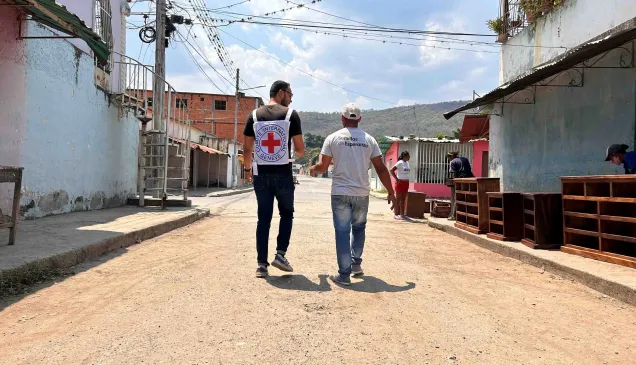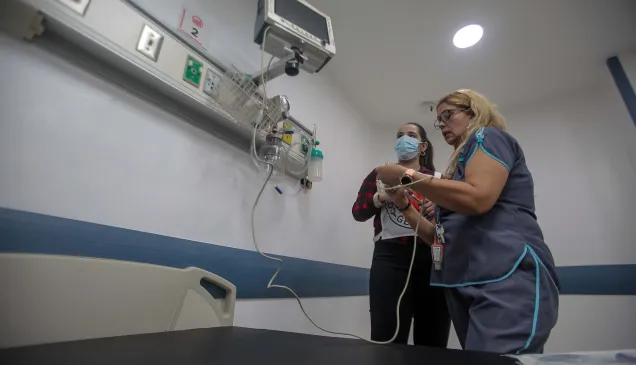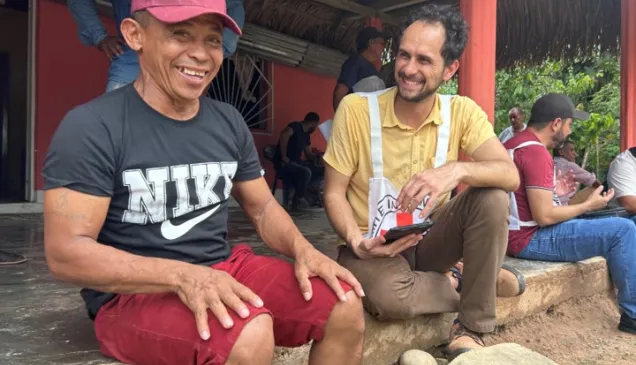Venezuela: Water is a precious resource for the communities we help
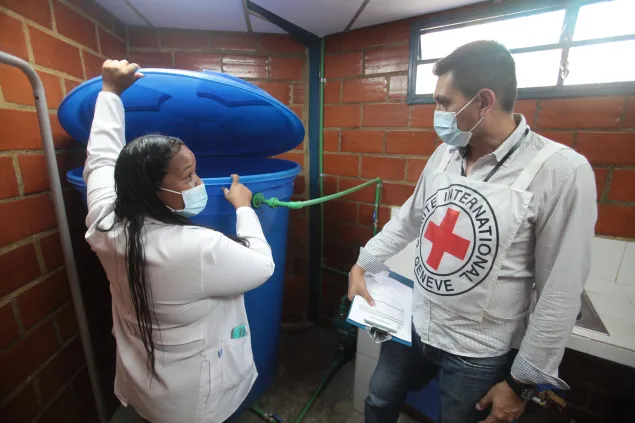
For health centre staff, access to water – to ensure that hygiene standards are maintained – is just as important as the availability of medicines and medical equipment. In 2022, we worked together with the authorities and health personnel to build, refurbish and repair the water systems (both supply and storage) in various centres, so that patients, in particular those who had been injured or exposed to multiple forms of trauma as a result of violence, could be treated in conditions that respected their dignity from the moment they were admitted until they could be discharged.
We have improved access to water – an essential resource – and trained staff to manage it properly at the Ludovico Silva comprehensive diagnostic centre in Caracas , the public health clinics (“consultorios populares”) in the Petare Norte and La Cota 905 community of Caracas, the Domingo Luciani Hospital in Caracas, the Juan German Roscio Hospital in El Callao (Bolívar state) and the primary care centres in Puerto Páez, among others.
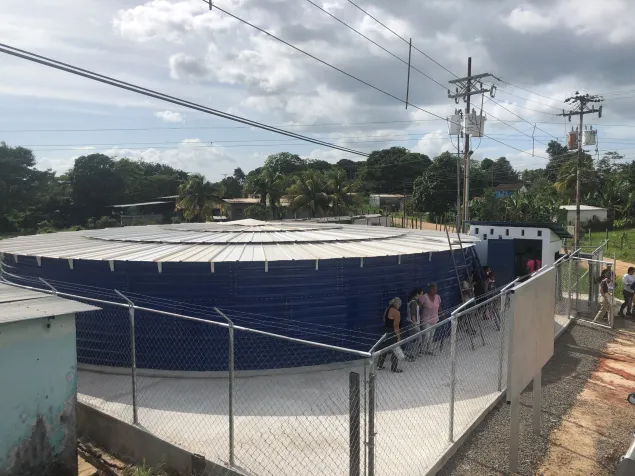
Safe water for all
For people living in remote communities in the country and in the most vulnerable areas of the capital, exposure to armed violence is a part of everyday life. Their problems are compounded when access to basic services is scarce and they cannot afford to pay for water brought in by tanker trucks or where this is not an option for economic and security reasons. In some cases, communities cannot afford to repair water leaks caused by broken pipes. To address these problems, we rehabilitated the water supply and storage systems in communities such as Tumeremo and El Callao in Bolívar state, in order to help the approximately 3,600 people who live there and require water for their work, to deal with health emergencies and, of course, for domestic use.
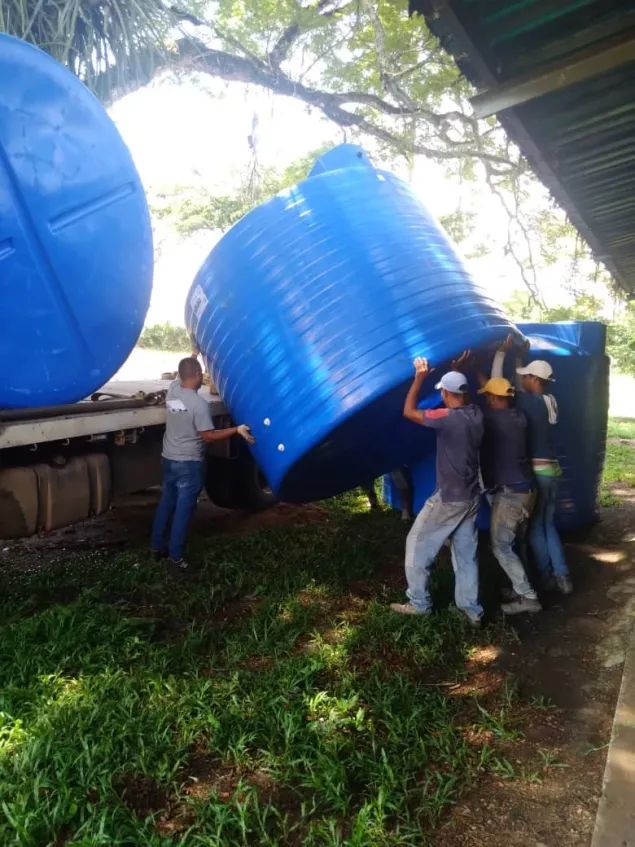
Access to water in prisons
In Venezuela, we work in prisons to ensure that detainees are treated with dignity and that their living conditions meet certain basic standards. This, of course, includes access to essential services, such as water. In 2022, we helped three prisons in the states of Lara and Bolívar to maintain these essential services, ensure a regular supply of water from cisterns and create a rainwater harvesting system that enables the prisons to largely cover their most urgent needs and improve prison conditions.
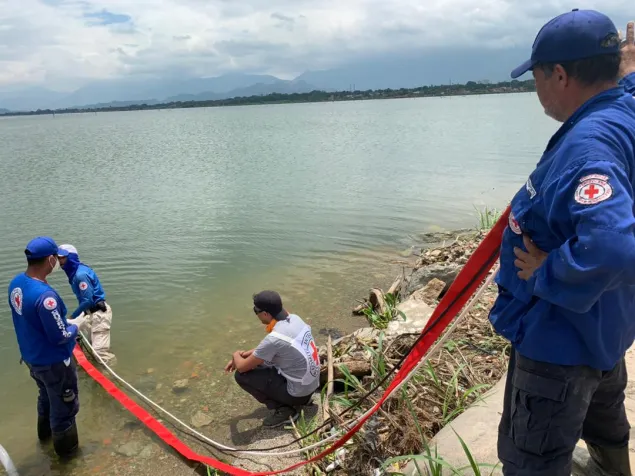
Access to water in emergencies
In emergency situations, the basic human need for water becomes more pressing than ever. In 2022, we provided technical training to Venezuelan Red Cross volunteers in different parts of the country, to strengthen their ability to extract, purify and supply water (from natural sources) to people during natural disasters and other emergencies.
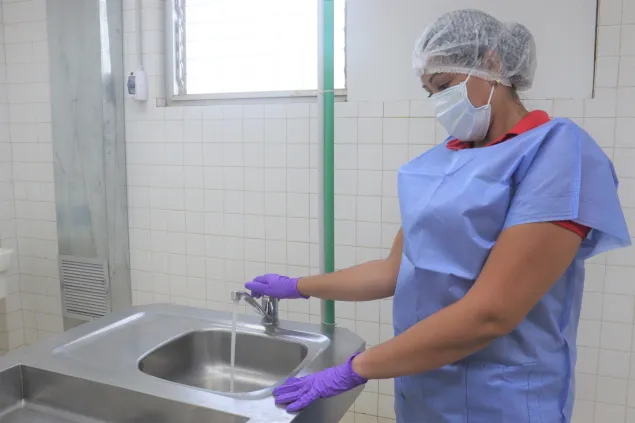
A dignified farewell
The right to be treated with respect and dignity applies even after death, which is why we work to ensure that the deceased are treated properly, including by making sure that forensic centres have optimal access to water and water storage facilities, to ensure that the bodies of the deceased can be traced, identified and returned to their families with dignity. In cooperation with the Medical and Forensic Science Department (SENAMECF) branches in Bello Monte (Caracas), Guasdualito (Apure state), Maracay (Aragua state), Los Teques (Miranda state), San Fernando (Apure state) and Tumeremo (Bolívar state), we have been working with the authorities and forensic staff to improve services and to ensure that families can say goodbye to their loved ones with as much dignity as possible.
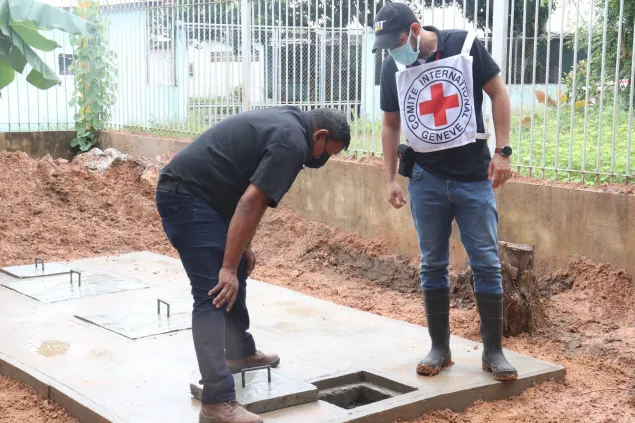
A safe learning environment
In many parts of the country, armed violence disrupts normal school activities. Some school buildings have been structurally damaged by gunfire, leaving teachers and students unable to access classrooms. The problem has been compounded by a lack of basic services such as water, further hampering access to education. In 2022, to ensure a safe environment for teachers and students, we helped to repair the infrastructure – especially access to basic services such as water – in a number of schools, including Guillermina Rickel school in the 24 de Marzo community in Petare; The Sucre school in La Cota 905 community in Caracas, La Macanilla Capanaparo school in Apure state, and the Agricultural Technical School in El Nula in Táchira state.
On World Water Day, it is important to remember that lack of access to water exacerbates, in various ways, the difficulties that people living in areas affected by armed violence already face. For individuals and families, access to water has an impact on health, food and household income (as many people use water for work). More broadly, access to water is also vital for prisons, forensic clinics and health centres, with an impact on staff, detainees, wounded and sick patients, and on how those who have died are handled.
These are some examples of the 35 structures we repaired and refurbished in 2022, in areas of Caracas and in the states of Aragua, Miranda, Táchira, Apure, Zulia and Bolívar, improving access to water for approximately 38,000 people.
Our work in the field of water and sanitation involves not only improving water supply and storage systems, but also capacity-building for local technicians on operating and maintaining the refurbished systems, taking environmental issues and the sustainable use of natural resources into account. In 2023, our efforts will focus on strengthening the resilience of critical service systems, including water and electricity, as well as of communities, to ensure that our work has a sustainable humanitarian impact while responding to the long-term needs of affected communities.

